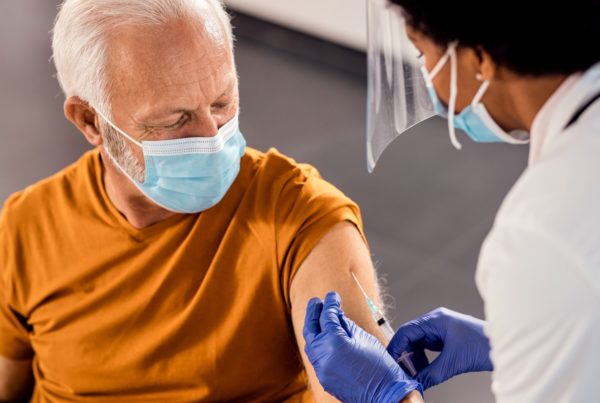
This article is one of the many resources offered within our Health Navigation Platform, giving your members access to credible health information. In it, Chief Medical Officer Dr. Michael Szabo answers if we should wear a mask or not amidst the COVID-19 pandemic.
____________________________________________________________________________________________________
Should we wear a mask when we go out in public right now? That’s a question that many people have on their minds since the Centers for Disease Control and Prevention (the CDC) issued a new recommendation that the public should wear masks when leaving their homes. Canada’s chief public health officer has also made this recommendation.
There was confusion because initially, the CDC and the Public Health Agency of Canada had come out and said that masks should not be worn in public. The flip-flop in recommendations is understandably confusing to many.
Why Measures are Evolving
It is important to understand that in a complex and evolving situation such as this, it can be quite difficult to set firm policy. The situation changes and the risks and benefits of recommendations are constantly being re-evaluated. In a way, it is good to know that no one is being rigid right now, and that agencies like the CDC are revising their guidelines based on the best available information, with the goal of keeping us all as safe as possible.
What is driving a lot of the change in recommendations with respect to face masks is the increase in community spread of the virus. We believe now that there is indeed some community transmission from people who have no symptoms at all (asymptomatic), or just minimal symptoms (pre-symptomatic) before they realize that they are sick. This transmission occurs when people are near one another, less than two meters or six feet apart, and are breathing or letting out a small sneeze or cough.
We used to think that transmission of the virus in this manner was unlikely to be significant, but now we are re-thinking that possibility. The CDC want to err on the side of keeping people safe, particularly in areas of the world where there is a lot of community transmission.
When to Wear a Mask
Wearing a mask does have some risks; they must be worn properly, or they could increase the risk of infection. Up until now, it was felt that the risks outweighed the benefits, but now it would seem that the benefits outweigh the risks.
We should consider wearing a mask if we are leaving our homes and going out into the community where we feel it would be difficult to maintain social distancing measures. In other words, if you feel that people are likely to get within two meters or six feet of you, and you would not be able to stop it, then wear a mask. Examples include going out to a grocery store or pharmacy where people are milling about. As long as you are able to control your interactions with people, such as going for a run outside, you do not need to wear a mask.
The mask need not be a medical grade mask such as a surgical mask. An N95 mask is not of any benefit outside of the hospital setting. You can make your own cloth mask at home. The CDC has some useful information on how to make your own mask.
How to Wear a Mask
Wearing the mask safely is of utmost importance. The cardinal rule is to treat the mask like it’s covered in virus.
- Wash your hands before putting the mask on.
- Make sure it covers your mouth and nose.
- Never touch the mask itself while wearing it. That is extremely important.
- Be very careful when taking it off so that it does not touch your face at all after it is removed.
- Wash your hands immediately upon removing the mask.
- It should be cleaned in the wash and not worn again without washing.
Finally, make sure that you don’t feel a sense of false security while wearing a mask. Continue to maintain physical distancing measures while wearing it. The purpose of the mask is to add another layer of security when out in public and it does not eliminate the need to physically distance.
About the Author
Dr. Michael Szabo is the Medical Director of Novus Health. He is an emergency physician at University Health Network in Toronto and a lecturer in the Department of Family and Community Medicine at the University of Toronto. Dr. Szabo has 25 years of experience providing front-line medical care. He has extensive experience with providing executive and concierge health care as well as expert medical second opinions.
For more valuable health information, visit our Ask the Expert page.



